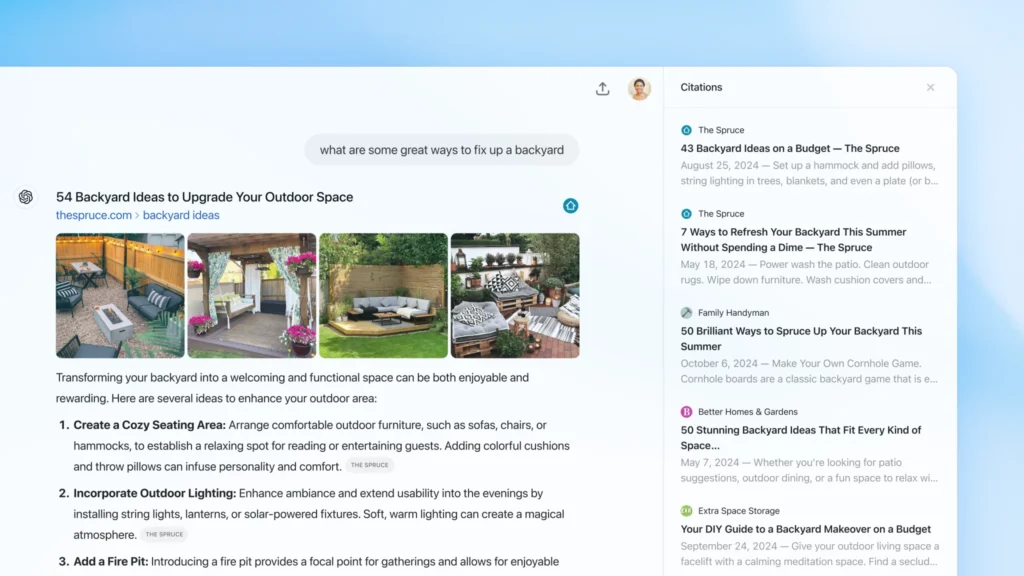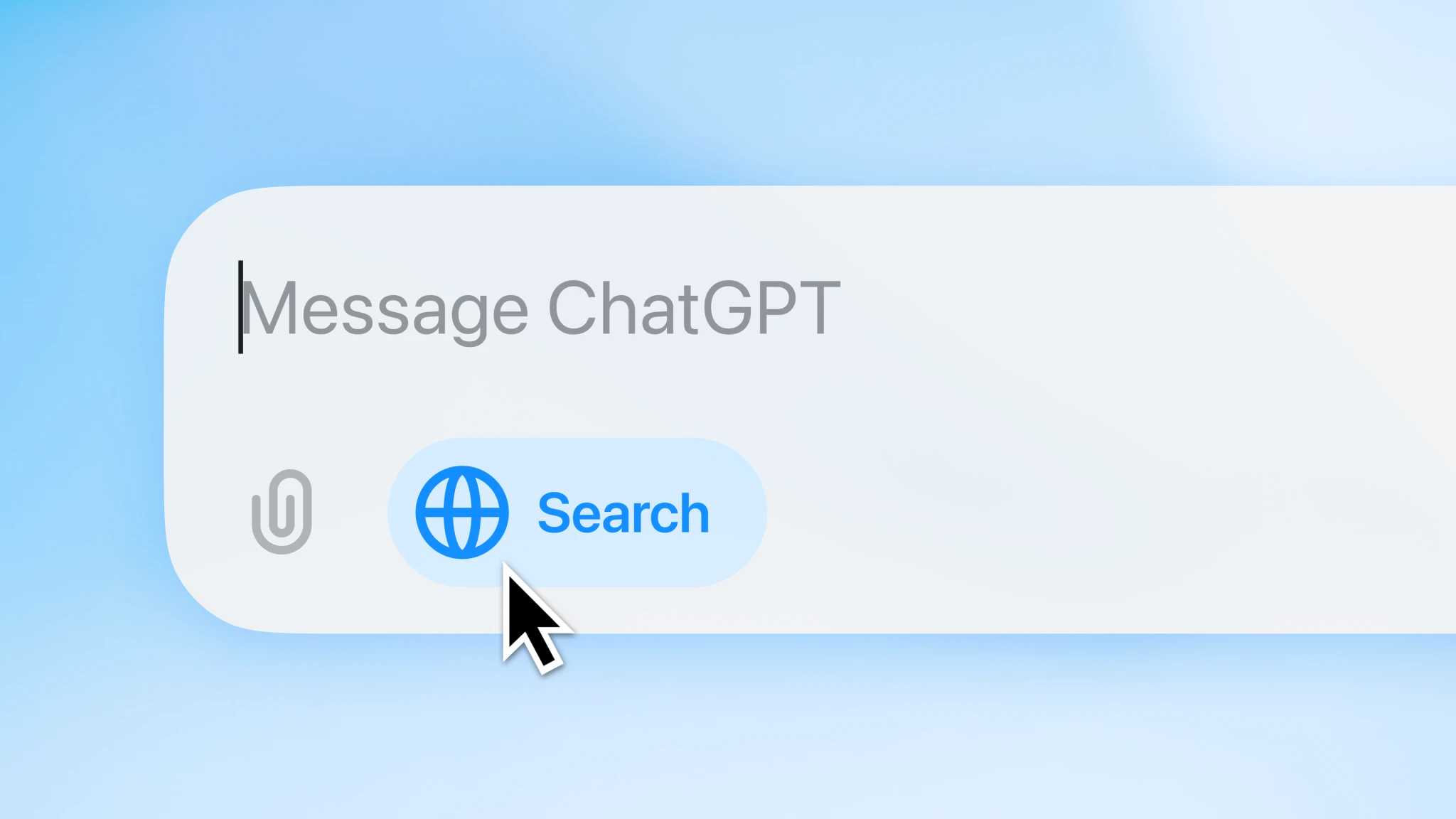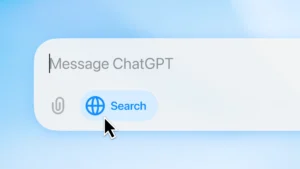OpenAI has introduced an advanced web search feature to ChatGPT, effectively merging conversational AI with real-time internet browsing. This new feature, currently available to ChatGPT Plus and Team users and soon to Enterprise and Education users, positions ChatGPT as a versatile tool for accessing and synthesising information directly within the chat interface. Free-tier users can expect access over the coming months.
Conversational Search: ChatGPT vs. Google and Perplexity AI
With ChatGPT Search, OpenAI is reshaping the way we access information, challenging traditional search engines like Google and rising competitors such as Perplexity AI. While Google Search remains the dominant method of information retrieval, ChatGPT’s approach is more conversational and context-aware. Traditional search engines require users to refine search terms, sift through multiple links, and synthesise the information themselves. ChatGPT, in contrast, allows users to ask questions naturally and delve deeper with follow-up queries. By providing direct responses enriched with relevant sources, ChatGPT aims to minimise the time users spend searching, allowing for a seamless flow of information.
Perplexity AI, another AI-driven search tool, similarly combines conversational queries with web data, but ChatGPT’s enhanced context-based reasoning sets it apart. Leveraging OpenAI’s GPT-4o model, ChatGPT Search provides a more intuitive experience, where complex or multi-layered queries are resolved through a single interface rather than relying on multiple rounds of search and refinement. Additionally, while Perplexity AI operates as a dedicated search assistant, OpenAI’s integrated search is part of a broader ecosystem, combining the strengths of generative AI, live web updates, and sources provided by reputable third-party providers.
Why This Matters
ChatGPT Search enables users to access timely information within the chat without breaking workflow, enhancing productivity and supporting critical reasoning. This conversational search experience allows users to refine their queries naturally and dive deeper without opening new browser tabs.
This feature also helps avoid over-reliance on generative AI. Instead of receiving broad, purely generative responses, users can now access real-time information, empowering them to use AI as a collaborative tool. For instance, students can access the latest research and professionals can pull in recent industry news—all within a cohesive, interactive chat experience.

How to Use ChatGPT Search
Accessing ChatGPT Search is straightforward, with a web search icon available for those who want to initiate a search manually. The AI also autonomously conducts searches when it detects the need for real-time data. When sources are referenced, users can click the “Sources” button below ChatGPT’s response to view a sidebar of direct links, allowing for deeper exploration as needed.
This feature is currently exclusive to ChatGPT Plus, Team, and selected Enterprise users, but OpenAI will roll out access to free-tier users in the coming months. Plus and Team users can access ChatGPT Search through chatgpt.com or on mobile and desktop apps.
Implications for Competitors and the Future of AI-Driven Search
ChatGPT Search’s arrival signals a broader transformation in the AI market, impacting competitors like Perplexity AI, Google, and other emerging AI-based assistants. By integrating search within a conversation-driven framework, OpenAI highlights the importance of contextual understanding and real-time updates, areas where Perplexity AI and Google may need to evolve. Perplexity’s focus on direct answers will need to expand to match the robust, multi-source capability that ChatGPT offers, while Google may face increased pressure to introduce conversational AI within its core search function.
As OpenAI continues refining ChatGPT’s search capabilities, particularly in areas like shopping, travel, and advanced research, the impact on productivity tools and general information consumption could be significant. This represents a new way to stay informed and engaged without compromising AI use or information quality.
By redefining search as a dialogue, ChatGPT is creating a more user-centric internet experience. For responsible AI adopters, this new approach empowers them to combine the efficiency of AI with their own critical and analytical skills, bridging the gap between raw information and deeper understanding.






